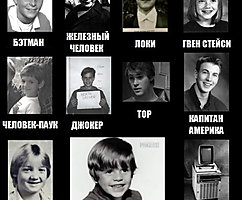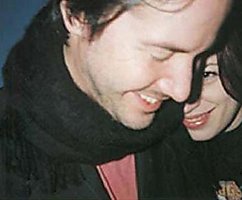Writing skills
 Bashny.Net
Bashny.Net
Tips for working with texts by Ogilvy, Steinbeck, Kurt Vonnegut, Kerouac and Henry Millera.Protsess creativity can not be described mathematically precise wording - it is individual and always depends on the abilities, intuition and experience of the author.
However, almost any activity can be formulated technical rules and guidelines, adhering to which man is capable of without unnecessary error to get things done faster and learn the lessons and conclusions reached by the great predecessors. "Theory and Practice" published by the Council on the five recognized authorities on how to make the process of writing the texts most fruitful.
David Ogilvi
The founder of advertising agency Ogilvy & Mather, with an annual turnover of more than $ 10 billion, which is often called the father of advertising and one of the best copywriters in the history of advertising. September 7, 1982 sent to all agencies HR-famous memo entitled with "How to write?».
How to write?
The more you write, the more you go to Ogilvy & Mather. People who know how to think, and know how to write. People suffering from stupidity, write the same memories, writing and speaking. The ability to write well - is not a gift from nature. It is necessary to learn. And here are 10 tips how to do it.
Read a book about Roman Rafelsona letter Writing that works: How to Communicate Effectively In Business. No, better to read it three times. Write as you speak. Naturally. Use short words, short sentences and short paragraphs. Expressed simply, without claiming to be intelligent. Never use words like "conceptualization" and "decentralization". Do not write more than two pages on a single subject matter. Always check the accuracy of the quotes. Never send a letter or a note on the same day in which they are written. Read aloud written the next morning - most likely, you will want to modify the text. If you are working on something very important, then ask colleagues to express their views on the written. Before you send a letter or a note, make sure that the recipient will understand exactly what it is you want from him. If you want action - do not write. Go to the person and tell him personally that you need.
Henry Miller
While working on his novel "Tropic of Cancer" by Henry Miller was 11 Commandments of the writer and his daily creative routine that helped him finish the work. He also recorded on paper the schedule to be followed during operation.
11 Commandments of the writer
Until you finish one thing, do not start another. Do not start new books, do not add chapters in the "Black Spring." Do not worry. Work safely, happily and recklessly on what is at hand. Work under the program, not mood. Stayed at the appointed time! When you can not do, you can work. Gradually strengthen and cemented the result of every day, instead loosen the soil with new fertilizers. Stay man! Meet people, go out, drink, if it wants to. Do not be a workhorse! Works only with pleasure. Violate developed program, when you want, but come back to it the next day. Concentrate. Narrows. Eliminates unnecessary. Forget about the books I want to write. Remember only that which you write. First of all - always write. Painting, music, friends, movies - all this later.
The daily
Morning. If there are no forces - write notes and sorts them, it can inspire you.
If OK - write.
Day. Some of the work in front of the eyes - watch carefully this part of the plan. Do not get distracted, do not let yourself be distracted. Write until you have finished this part.
evening. to meet with friends, read a cafe. Explore the unknown nooks and crannies. Walking - if wet, on a bicycle - if dry. Write to me, if there is a mood, but do not get carried away. Draw, if you feel tired or devastation. Component notes and plans. Corrects them.
Reminder. Leave a daytime out sometimes to get to the museum, to make a sketch and cycling. Sketching in cafés, trains and on the streets. Fewer films! Library for verification - once a week.
John Steynbek
Nobel laureate and Pulitzer Prize winner John Steinbeck known for his approach to writing texts in the spirit of socialist realism - talk only about what is really important. In an interview in 1975 the magazine The Paris Review, he shared his secrets of creativity.
Forget the idea that you've ever done your job. Do not think that you should write 400 pages - just write one day, it helps. Once you are surprised to find that completed their work. Write freely and as fast as you can - to throw everything on paper. Never edit them or overwrite as long as your point. Rewriting in the process - it is usually no more than an excuse for not moving forward. It also prevents the free flow of ideas and rhythms, which come only when the unconscious material. Forget about the audience. First, faceless mass scare you to death, and secondly, it exists only in the theater, and literature - not. In the literature, your audience - is only one reader. I came to the conclusion that sometimes it is best to choose someone from friends or invent an imaginary character and write for him. If a scene or chapter does not work, and you think that you could be better - leave it alone and move on. When finished, you can go back and will likely find that the cause of your dissatisfaction was that this part of the text simply was not in place. Treat with caution to the episode that is too dear to your heart and love you a lot more than the rest of the scene of your text. Typically, these episodes do not fit into the fabric of the narrative. If you are writing dialogue - Speak it out loud. Only then did he begin to sound like a real speech.
Kurt Vonnegut
Kurt Vonnegut - one of the key American writers and journalists of the XX century, the master of satirical short stories and essays. In his video interview he gave eight tips on how to write a good story.
Dispose of time the reader - a man completely unfamiliar to you - so that he never for a second thought if it was wasted. Give the reader at least one character with whom he would himself somehow associate. Each character should want something - even if it's just a glass of water. Each proposal must pursue one of the following purposes - either to disclose the nature, or to develop action. Start as close to the junction as possible. Be a sadist. No matter how sweet and innocent your heroes - let them happen terrible things. Then readers will see from what these people are actually made. Write to please just one person. If you say so, open the window and offer your love around the world, your story will pick up pneumonia. Grant readers compressed as much as possible information. To hell with suspense! Readers should fully understand what is happening and be able to finish the story without your help, even the cockroaches will eat the last pages of the book.
Jack Keruak
"Postulates and techniques for prose and life," Jack Kerouac - real meditation on the theme of literature and life in general. Some researchers argue that the room beatnik poet Allen Ginsberg on the wall hung a sheet with the "postulate", which later inspired him to write the famous poem "Howl».
The postulates and techniques for prose and life
Scribbled cursive secret notebooks and typed on a typewriter in a fit of madness page of text - for my own pleasure. Susceptibility to everything, openness, willingness to listen. Never get drunk outside the home. Loving life. Any sense of form and find a way out. In a literal sense to get rid of grammatical and syntactical aspects. Tells the true story of the world in the inner monologue. Take the loss - forever. Believe in the holy life curve. Trying to convey the flow that is already raging in my head. You - always a genius.
Also read:
26 writers advice about work with texts
How to recognize good ideas
29 tips how to create, still
via theoryandpractice.ru/posts/4791-pisatelskoe-masterstvo-sovety-dlya-raboty-s-tekstom
However, almost any activity can be formulated technical rules and guidelines, adhering to which man is capable of without unnecessary error to get things done faster and learn the lessons and conclusions reached by the great predecessors. "Theory and Practice" published by the Council on the five recognized authorities on how to make the process of writing the texts most fruitful.
David Ogilvi

The founder of advertising agency Ogilvy & Mather, with an annual turnover of more than $ 10 billion, which is often called the father of advertising and one of the best copywriters in the history of advertising. September 7, 1982 sent to all agencies HR-famous memo entitled with "How to write?».
How to write?
The more you write, the more you go to Ogilvy & Mather. People who know how to think, and know how to write. People suffering from stupidity, write the same memories, writing and speaking. The ability to write well - is not a gift from nature. It is necessary to learn. And here are 10 tips how to do it.
Read a book about Roman Rafelsona letter Writing that works: How to Communicate Effectively In Business. No, better to read it three times. Write as you speak. Naturally. Use short words, short sentences and short paragraphs. Expressed simply, without claiming to be intelligent. Never use words like "conceptualization" and "decentralization". Do not write more than two pages on a single subject matter. Always check the accuracy of the quotes. Never send a letter or a note on the same day in which they are written. Read aloud written the next morning - most likely, you will want to modify the text. If you are working on something very important, then ask colleagues to express their views on the written. Before you send a letter or a note, make sure that the recipient will understand exactly what it is you want from him. If you want action - do not write. Go to the person and tell him personally that you need.
Henry Miller

While working on his novel "Tropic of Cancer" by Henry Miller was 11 Commandments of the writer and his daily creative routine that helped him finish the work. He also recorded on paper the schedule to be followed during operation.
11 Commandments of the writer
Until you finish one thing, do not start another. Do not start new books, do not add chapters in the "Black Spring." Do not worry. Work safely, happily and recklessly on what is at hand. Work under the program, not mood. Stayed at the appointed time! When you can not do, you can work. Gradually strengthen and cemented the result of every day, instead loosen the soil with new fertilizers. Stay man! Meet people, go out, drink, if it wants to. Do not be a workhorse! Works only with pleasure. Violate developed program, when you want, but come back to it the next day. Concentrate. Narrows. Eliminates unnecessary. Forget about the books I want to write. Remember only that which you write. First of all - always write. Painting, music, friends, movies - all this later.
The daily
Morning. If there are no forces - write notes and sorts them, it can inspire you.
If OK - write.
Day. Some of the work in front of the eyes - watch carefully this part of the plan. Do not get distracted, do not let yourself be distracted. Write until you have finished this part.
evening. to meet with friends, read a cafe. Explore the unknown nooks and crannies. Walking - if wet, on a bicycle - if dry. Write to me, if there is a mood, but do not get carried away. Draw, if you feel tired or devastation. Component notes and plans. Corrects them.
Reminder. Leave a daytime out sometimes to get to the museum, to make a sketch and cycling. Sketching in cafés, trains and on the streets. Fewer films! Library for verification - once a week.
John Steynbek

Nobel laureate and Pulitzer Prize winner John Steinbeck known for his approach to writing texts in the spirit of socialist realism - talk only about what is really important. In an interview in 1975 the magazine The Paris Review, he shared his secrets of creativity.
Forget the idea that you've ever done your job. Do not think that you should write 400 pages - just write one day, it helps. Once you are surprised to find that completed their work. Write freely and as fast as you can - to throw everything on paper. Never edit them or overwrite as long as your point. Rewriting in the process - it is usually no more than an excuse for not moving forward. It also prevents the free flow of ideas and rhythms, which come only when the unconscious material. Forget about the audience. First, faceless mass scare you to death, and secondly, it exists only in the theater, and literature - not. In the literature, your audience - is only one reader. I came to the conclusion that sometimes it is best to choose someone from friends or invent an imaginary character and write for him. If a scene or chapter does not work, and you think that you could be better - leave it alone and move on. When finished, you can go back and will likely find that the cause of your dissatisfaction was that this part of the text simply was not in place. Treat with caution to the episode that is too dear to your heart and love you a lot more than the rest of the scene of your text. Typically, these episodes do not fit into the fabric of the narrative. If you are writing dialogue - Speak it out loud. Only then did he begin to sound like a real speech.
Kurt Vonnegut

Kurt Vonnegut - one of the key American writers and journalists of the XX century, the master of satirical short stories and essays. In his video interview he gave eight tips on how to write a good story.
Dispose of time the reader - a man completely unfamiliar to you - so that he never for a second thought if it was wasted. Give the reader at least one character with whom he would himself somehow associate. Each character should want something - even if it's just a glass of water. Each proposal must pursue one of the following purposes - either to disclose the nature, or to develop action. Start as close to the junction as possible. Be a sadist. No matter how sweet and innocent your heroes - let them happen terrible things. Then readers will see from what these people are actually made. Write to please just one person. If you say so, open the window and offer your love around the world, your story will pick up pneumonia. Grant readers compressed as much as possible information. To hell with suspense! Readers should fully understand what is happening and be able to finish the story without your help, even the cockroaches will eat the last pages of the book.
Jack Keruak

"Postulates and techniques for prose and life," Jack Kerouac - real meditation on the theme of literature and life in general. Some researchers argue that the room beatnik poet Allen Ginsberg on the wall hung a sheet with the "postulate", which later inspired him to write the famous poem "Howl».
The postulates and techniques for prose and life
Scribbled cursive secret notebooks and typed on a typewriter in a fit of madness page of text - for my own pleasure. Susceptibility to everything, openness, willingness to listen. Never get drunk outside the home. Loving life. Any sense of form and find a way out. In a literal sense to get rid of grammatical and syntactical aspects. Tells the true story of the world in the inner monologue. Take the loss - forever. Believe in the holy life curve. Trying to convey the flow that is already raging in my head. You - always a genius.
Also read:
26 writers advice about work with texts
How to recognize good ideas
29 tips how to create, still
via theoryandpractice.ru/posts/4791-pisatelskoe-masterstvo-sovety-dlya-raboty-s-tekstom
Tags
See also
Hemingway, Bradbury and Paustovsky how to write
Advertising that works
"Do what you love" - is terrible advice or a realistic career option?
More strange advice I had ever seen ... But they work great!
Two days in the Wieden + Kennedy Amsterdam
15 signs that the Russian advertising is getting worse
FAS discussed the application of the new legislation on advertising
Travel Tips by Paulo Coelho
Outdoor advertising, which works (21 photos)
Suicidal few secrets of sales, or how to sell snow to Mount Fuji.

















